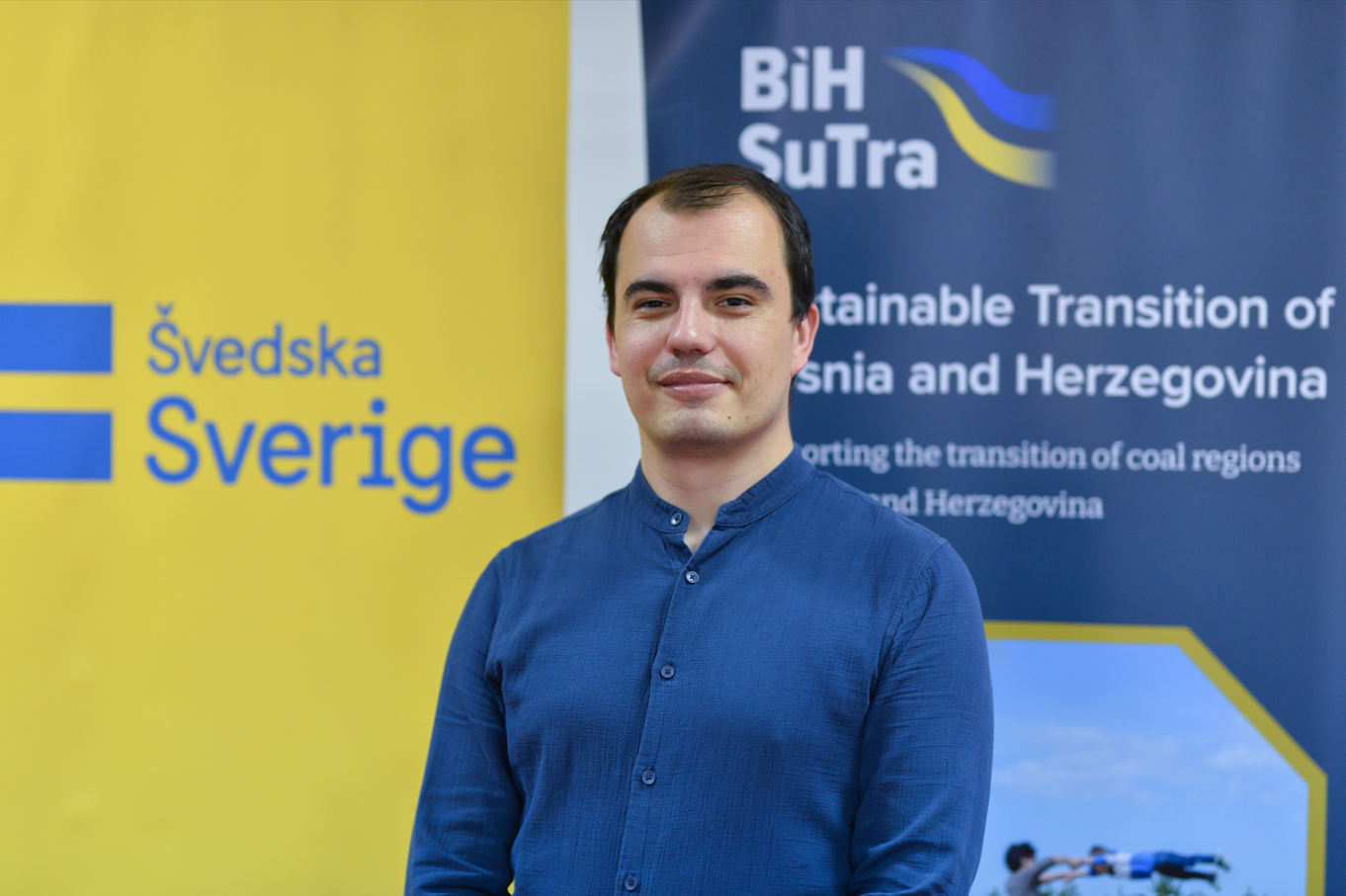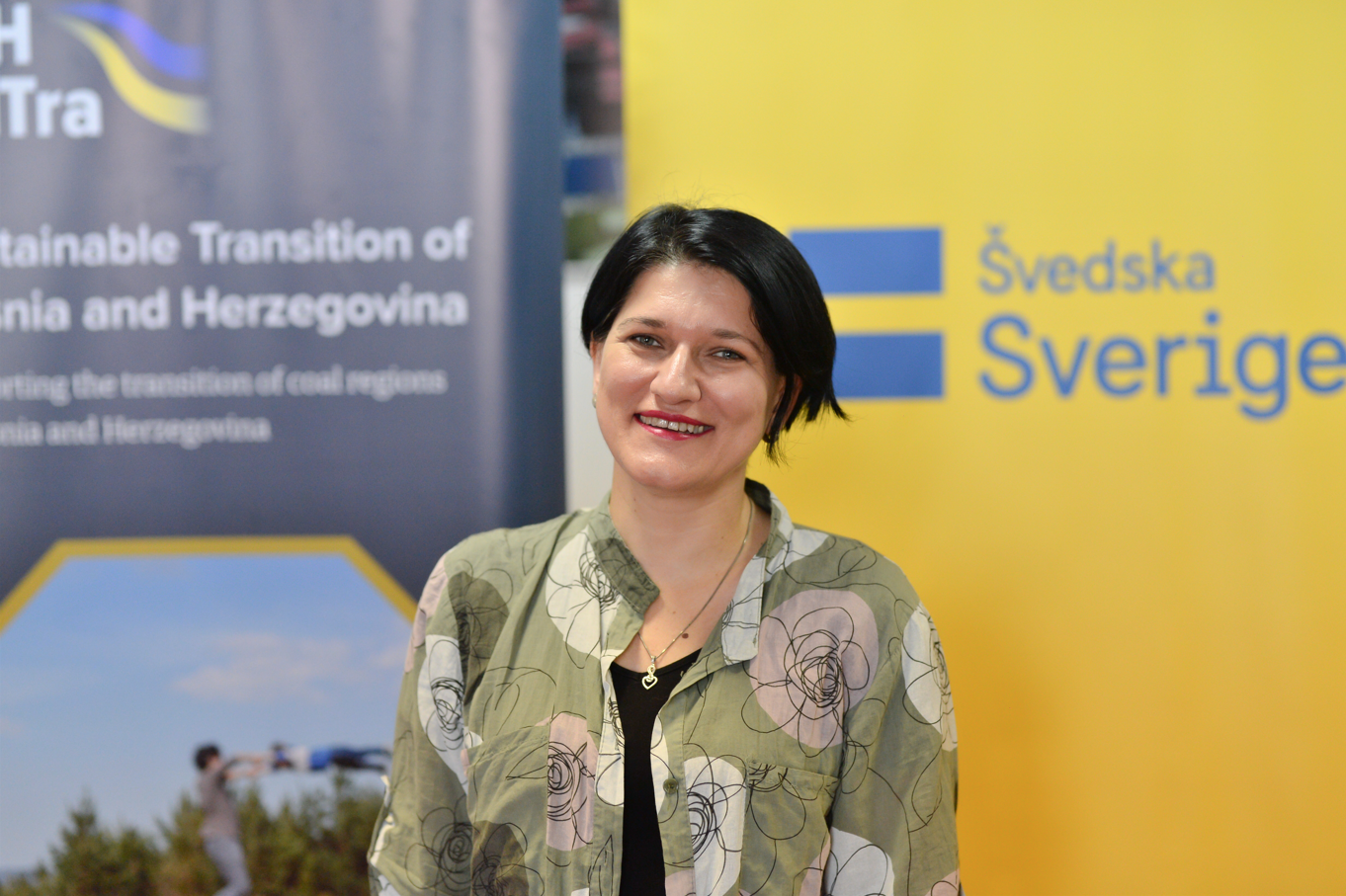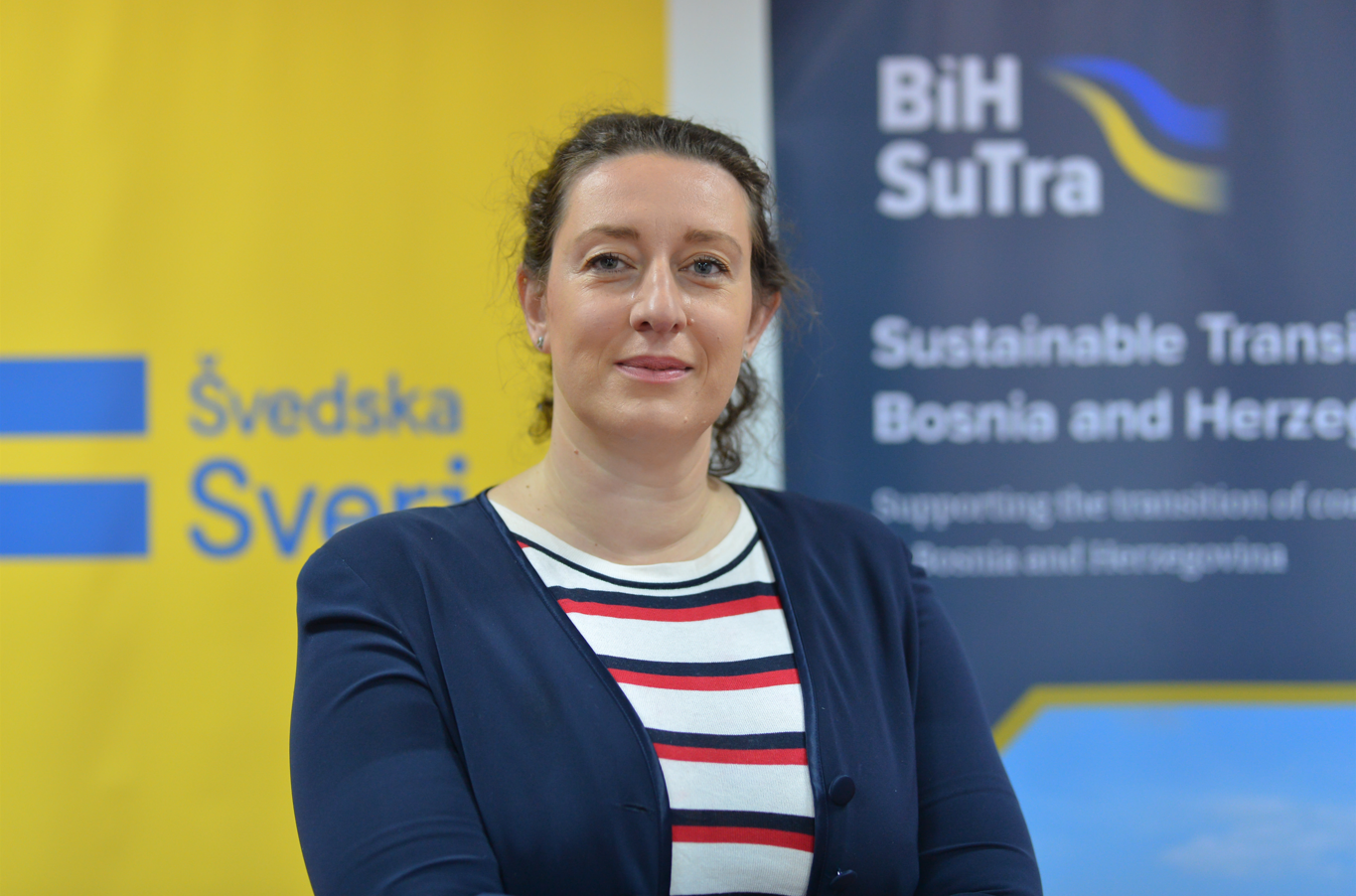 The second consultation meeting in the municipality of Ugljevik . Photo: Foto Tomić, Bijeljina.
The second consultation meeting in the municipality of Ugljevik . Photo: Foto Tomić, Bijeljina.
 The second consultation meeting in the municipality of Ugljevik . Photo: Foto Tomić, Bijeljina.
The second consultation meeting in the municipality of Ugljevik . Photo: Foto Tomić, Bijeljina.
Today's event in the municipality of Ugljevik successfully finalized the second round of consultation meetings within the BiH SuTra programme, bringing the four local communities of the programme closer to their transition plans.
At the meeting, programme experts presented an overview of short-term activities for five development pathways: decarbonization (energy, climate, and sustainable transport), circular economy, pollution reduction, sustainable agriculture, and nature protection and biodiversity. These activities will be part of the Operational Plan for the period 2025-2027, which will be an integral part of the final Transition Plan for this municipality.
During the creation of proposals for short-term activities, the geographical position of the municipality of Ugljevik was considered, as well as the specifics of the area, so that the transition would contribute to creating a more sustainable society and improving the environment as well as and living conditions of citizens.
As the name suggests (in the local language), Ugljevik is primarily an area rich in coal. Over 50% of the population of this municipality is connected to coal and electricity production through the mine and thermal power plant. However, Ugljevik is also a secondary agricultural region where the residents engage in small-scale agriculture.
"Ugljevik is an area with great potential for agriculture due to its flat landscape close to the Semberija region. It is primarily known for animal production and fruit production, especially plums. This area is also known for the production of high-quality brandy. In this context, it can be assumed that in the future, this area will become even more agricultural because the real potential lies in the transition from mining operations to agricultural production," said Samir Husić, M.Sc. of sustainable management of land and rural space, an expert in sustainable agriculture for the BiH SuTra programme.

Samir Husić, M.Sc. of sustainable management of land and rural space, an expert in sustainable agriculture for the BiH SuTra programme. Photo: Foto Tomić, Bijeljina.
Sustainable agriculture in the Transition Plan for the municipality of Ugljevik is conceived through 10 measures that include 26 short-term activities. Bearing in mind that the local aspect is the most important for sustainable agriculture, the Municipality of Ugljevik will prioritize activities based on the vision of its desired development direction.
"One of the proposed measures I would single out is adaptation to climate change. Right now, during the current heatwaves, we are witnessing climate changes, so one of the activities is the increase of areas for irrigation. Another example is the transition to sustainable methods of growing agricultural crops, to the so-called 'integral agricultural production,' which includes all aspects of agriculture," explains Husić.
Reducing pollution has become one of the key goals in the global context of sustainable development. The Transition Plan for the municipality of Ugljevik will include measures and activities aimed at reducing pollution in this area.

Melina Džajić-Valjevac, an expert in pollution reduction in the programme. Photo: Foto Tomić, Bijeljina.
"The municipality of Ugljevik has sufficient water resources to supply the population. However, in the short term, a number of activities need to be undertaken to prevent losses in the network and risks of pollution. Sewerage coverage is at a fairly low level, implying risks to the health of the population from groundwater contamination. Therefore, it is necessary to implement actions to expand the sewage system and to treat wastewater, all with visions of planning until 2050. The population should be regularly informed about the quality of air and drinking water, the two most important parameters of environmental conditions, which is recognized and addressed in the Transition Plan," said Melina Džajić-Valjevac, an expert in pollution reduction in the programme.
At the end of 2023, as part of the initial activities of the BiH SuTra programme, visions for 2050 were created for all four pilot municipalities and the city (Banovići, Breza, Ugljevik, and Živinice) in accordance with the EU Green Agenda for the Western Balkans. Based on the defined visions, the first draft of transition plans was created, containing proposals for goals, measures, and a set of activities for all five development pathways for the short, medium, and long-term. Transition plans also integrate aspects of gender equality, social equality, and poverty (GESEP) as indispensable categories of a just transition.
Proposed measures and activities were presented to stakeholders from different sectors (governmental, non-governmental, private, and academic) in four coal-rich areas during the first round of consultation meetings held in April this year.
This week, the second round of consultation meetings was held in all four local self-government units, where the proposed short-term activities for the period 2025-2027 were presented in detail. Representatives of all pilot areas are invited to submit comments on the presented short-term activities for each development pathway by 1 July 2024. These will contribute to the creation of final documents in mid-July 2024 – i.e. transition plans for these four local communities, ready for adoption and further procedures.
"The second round of consultations with stakeholders in local self-government units gave us certain guidelines and comments on how activities should be defined and shaped, and what would be feasible in the short term and prioritized in certain local self-government units. What we noticed during the events is that other development pathways of sustainable transition, in addition to the current issues of energy and decarbonization, attract a lot of attention in local communities. It is important to also deal with nature protection and biodiversity, agriculture, and other areas," said Saša Solujić, BiH SuTra Programme Manager.

Saša Solujić, BiH SuTra Programme Manager. Photo: Foto Tomić, Bijeljina.
The final transition plans will contain an estimate of financial resources for implementing each proposed measure for the five development pathways. Based on this, the municipalities of Banovići, Breza, and Ugljevik, and the City of Živinice will prioritize measures in accordance with available financial and human capacities. The BiH SuTra programme, with the support of the Stockholm Environmental Institute (SEI), will support the implementation of two priority (non-infrastructural) measures in each programme unit. This will take place after the adoption of operational three-year plans, in accordance with existing legal regulations, as an integral part of the transition plans.
In the process of creating the plans, experts from Bosnia and Herzegovina, as well as from Scandinavian countries, participated to offer the best possible document of a sustainable transition plan through a combination of knowledge, expertise and experience.
The BiH SuTra programme is implemented with the support of the Swedish International Development Cooperation Agency (Sida) in Bosnia and Herzegovina.
Discover the News and Updates section, delivering the latest updates and insightful content across various topics. Stay informed with most recent news articles, reports, and publications, of the BiH SuTra project.